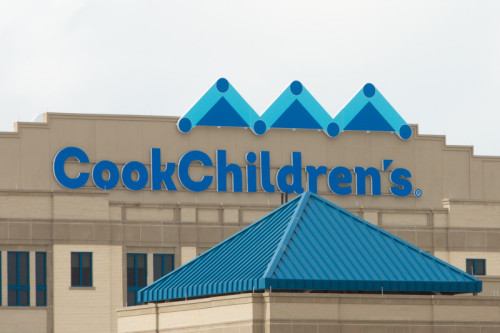CDC Recommends RSV Shot for Infants. Infectious Disease Doctor Shares What Parents Need to Know
Nicholas Rister, M.D., of the Cook Children's Infectious Disease team, shares what this means for parents of infants and young children.
By Eline Wiggins
The Centers for Disease Control and Prevention has recommended a new antibody shot to help prevent severe respiratory syncytial virus (RSV) disease in all infants.
RSV is a leading cause of hospitalization for infants. The use of nirsevimab (trade name Beyfortus) is a long-acting monoclonal antibody infusion, which has been shown to reduce the risk of both hospitalization and healthcare visits in infants by about 80%, according to the CDC.
The CDC recommends:
- One dose for all infants 8 months old and younger born during or entering the RSV season (fall through spring)
- One dose for children between 8 and 19 months old who are at an increased risk of severe RSV, including severely immunocompromised children
“This new antibody treatment, which has now received the Food and Drug Administration approval and CDC's Advisory Committee on Immunization Practices recommendation, will truly be a game-changer,” said Jason V. Terk, M.D. of Cook Children's Pediatrics Keller Parkway. “This will dramatically reduce the burden of this infection among infants in their 1st year of life and I am excited about that!”
What is RSV?
RSV is a common respiratory virus that usually causes mild, cold-like symptoms. Virtually all children will be infected by RSV by the time they are 2 years old. Most people recover in a week or two, but RSV can be serious, especially for infants and older adults. 
Every year, there are between 58,000 and 80,000 hospitalizations for RSV for children under 5 years old, according to the CDC.
RSV can also cause severe illnesses such as bronchiolitis and pneumonia. The risk is especially high for premature infants.
According to the CDC, those at greatest risk for severe illness from RSV include:
- Premature infants
- Infants, especially those 6 months and younger
- Children younger than 2 years old with chronic lung disease or congenital (present from birth) heart disease
- Children with weakened immune systems
- Children who have neuromuscular disorders, including those who have difficulty swallowing or clearing mucus secretions
Previously, there were limited treatments for RSV; most are available only for premature infants, infants with other lung diseases, infants who are considered immunocompromised, or patients with congenital heart disease.
Nicholas Rister, M.D., of the Cook Children's Infectious Disease team, shares what parents and caregivers need to know.
How severe can RSV be, if my baby is infected?
RSV is a very common infection for infants and young children. Most will only have a typical “cold” or “viral URI.” Although, given how many infants become infected, many children are admitted to the hospital and intensive care unit each year.
RSV infections can be very serious for some babies in particular. This includes very premature infants 36 weeks gestation or younger, but especially if younger than 32 weeks gestation. This also includes babies with congenital heart disease and babies who required several weeks of oxygen support after birth, such as ventilators or cannulas.
What is the difference between this antibody and a typical vaccine?
A vaccine is designed to trigger your body to produce its own antibodies to a disease. This provides both immediate protection and longer-term memory. An antibody infusion gives you protection immediately but has not trained your body to continue creating those antibodies. This leads to a quick but only temporary period of protection.
Many vaccines work well in older children but not infants. Providing antibody infusions can cover at-risk infants who would otherwise not create antibodies in response to a vaccine.
Can my baby show symptoms once they receive the antibody? Are there any side effects?
With any infusion of medication that was not created inside your baby’s body, there is always a chance their immune system will notice it and react. Thankfully young infants, due to their immune tolerance of recently living inside of another human body, develop these reactions less frequently. Your doctor will monitor for any signs of a reaction during the infusion and after with your assistance.
How long has this antibody been tested? How do I know it is safe for my child this fall?
The use of RSV antibody infusions has been present and tested for over a decade. While this newer treatment provides more widespread application, the core safety of the treatments is well established.
What is the most important takeaway for parents of infants?
RSV is a highly prevalent disease and every family should talk with their pediatrician about the potential benefit of this antibody infusion for their child. While some children will clearly benefit more than others, it is an important conversation to have for all families.
How soon will it be available at pediatrician offices?
The CDC expects nirsevimab to be available this fall. Expectant parents and parents of infants under the age of 8 months, as well as those with older babies, should talk with their pediatrician
Schedule an Appointment
Cook Children’s families can go to the MyCookChildren’s patient portal to schedule an appointment or access the immunization records needed for school registration. If you’re looking for a pediatrician, you can find the Cook Children’s location most convenient to you by visiting https://www.cookchildrens.org/visit/pediatrician-offices/
